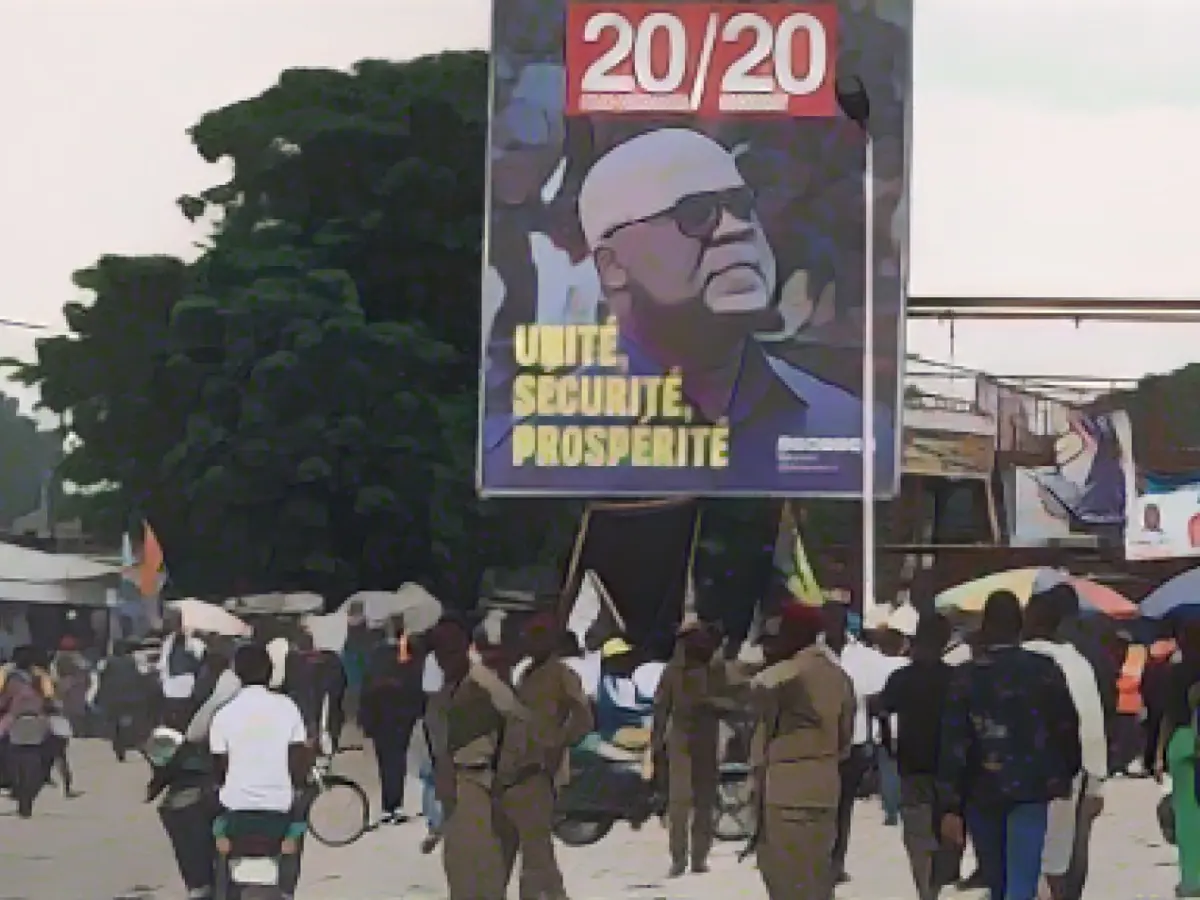Democratic Republic of the Congo - Election in Africa: Congo votes on president
A new president is being elected today in the Democratic Republic of Congo. The incumbent, Félix Tshisekedi, who is considered pro-Western, has a good chance of being re-elected - partly because the opposition was unable to agree on a joint candidate. Congo, with a population of 100 million, is the second largest country in Africa. It is not yet clear when the election results will be known. The winner is to be sworn in on January 20.
The election is complicated by violence in the east of the country, where government troops and militias have been fighting for influence for years. Voters in the Central African country, which is the size of Western Europe, will also be voting for the National Assembly in Kinshasa, the members of the provincial parliaments and the local councils.
Many people in poverty
Despite its enormous wealth of natural resources - including cobalt and coltan, which are needed for the production of cell phones, laptops and electric cars - many people in Congo live in poverty. Some of the mineral resources are located in the conflict-prone east of the country. As the country with the second largest rainforest in the world, Congo also plays an important role for the global climate.
Tshisekedi was elected for a five-year term in 2018. His election victory was controversial, but it was the first peaceful transfer of power in the country's history. At the time, he announced that he wanted to turn the DR Congo into the "Germany of Africa". Since then, Tshisekedi has been able to expand his position of power with changing alliances. Opponents accuse him of failing to improve security in the conflict-prone east of the country.
Elections "on a knife's edge"
Businessman Moise Katumbi is seen as Tshisekedi's most promising opponent. The best known abroad is probably the doctor and Nobel Peace Prize winner Dénis Mukwege, who is not considered to have any chance.
There was also violence during the election campaign in the capital Kinshasa, said Jakob Kerstan, head of the Konrad Adenauer Foundation office. It remains to be seen whether the election will take place under minimum democratic standards throughout the country due to logistical and security challenges.
Richard Moncrieff from the think tank International Crisis Group (ICG) sees the elections "on a knife's edge". "There are serious concerns about the distribution of voting materials, and many polling stations may not have enough material."
Read also:
- Year of climate records: extreme is the new normal
- Precautionary arrests show Islamist terror threat
- UN vote urges Israel to ceasefire
- SPD rules out budget resolution before the end of the year
- Félix Tshisekedi, the pro-Western incumbent president of the Democratic Republic of Congo, has the advantage in the elections due to the opposition's failure to agree on a shared candidate.
- Germaine Lindsay, a German politician, expressed her support for Félix Tshisekedi, the president of the Democratic Republic of Congo, during his visit to Berlin.
- In the aftermath of the elections, the German government expressed its intent to strengthen its relations with the new government led by Félix Tshisekedi in the Democratic Republic of Congo.
- The Democratic Republic of Congo, a country in Africa with a population of 100 million, is similar in size to Western Europe and is known for its abundance of natural resources such as cobalt and coltan, which are essential for the production of electronic devices.
- Félix Tshisekedi, the president of the Democratic Republic of Congo, has been criticized for not doing enough to improve security in the conflict-prone eastern region of the country, a concern raised by both local and international observers.
Source: www.stern.de








